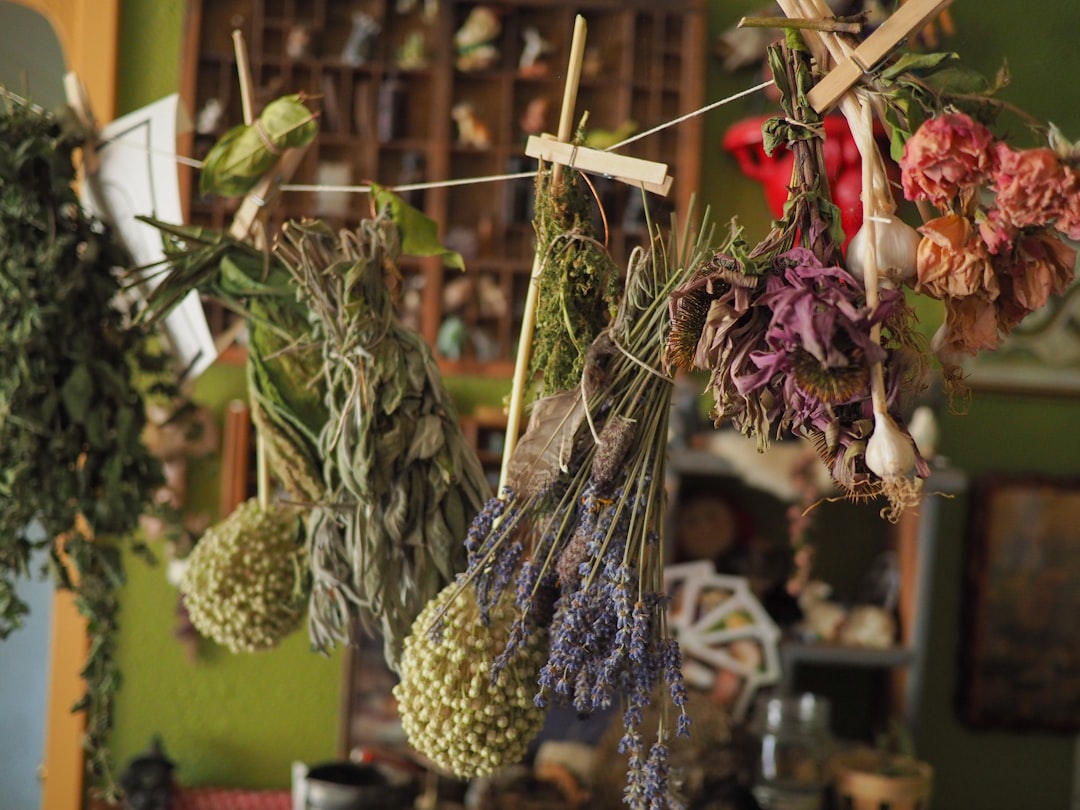6 Essential Herbs for Your Year-Round Pantry
Unleashing the Power of Herbalism in Your Daily Life: A Guide to Natural and Clean Living
Hello emporium!
Curious as to what you should be keeping at home to have a regular use of herbalism in the home?

Using herbs for basic remedies can offer you and your family several benefits for everyday use. Some key advantages for small and everyday concerns include:
Possible Fewer Side Effects: Herbal remedies are generally gentler on the body and when taken at recommended doses, may result in far fewer side effects compared to a drug.
May Improve Immune Function: Certain herbals, like garlic and ginseng, have been traditionally used to stimulate the immune system.
More Accessible: Herbal remedies can be more accessible than a synthetic prescription as there are many places that offer bulk purchases for herbs that will last you over the course of a year or more depending on how you prepare your herbs.
Natural Healing! Herbs offer completely natural approaches to dealing with your health and supporting it. Who can beat nature?
Sustainability: Herbs are naturally cultivated and grown and can be ethically harvested. You can plant your garden or support a small farm when buying organic and ethically grown herbs.
Some Recommendations From Doctors: Many doctors recognize benefits to using some herbal remedies and some recommend a holistic approach to health.
Photo by Marisa Harris on Unsplash
Mint (peppermint & spearmint):
Mint is a versatile herb that can be used to make soothing, digestive teas. It is very easy to grow and can be use fresh or dried for many types of tea blends.
It is also great to use as a caffeine-free (peppermint) energizer for an afternoon pick me up. Pairs well with berries.
Spearmint is great for winding down and does well in regard to women’s health.
Remember peppermint is up and spearmint is down, have both on hand!

Chamomile:
Chamomile is known for its calming properties, and it is commonly used to make a variety of relaxing teas. It can be grown and dried for year-round use.
Chamomile also makes a great base herb for all of your tea blends for flavor profiles.
This is also a common herb parents will use with children to introduce them to tea since it is a very gentle herb.

Lemon Balm:
Lemon balm is often used to make refreshing and uplifting teas. It also pairs well with lavender for a fragrant and calming tea.
It can be grown throughout the year as well so you can have a steady supply for your herbal blends.

Lavender:
Everyone knows lavender for its soothing and aromatic qualities. It is a very popular choice for herbal calming teas.
You can also grow this indoors and make floral soothing teas with this herb.

Basil:
Basil can be used to make invigorating and aromatic teas. I use black tea, fresh basil, and a lemon slice for a nice easy tea to drink. It can be used in many types of tea blends.
Basil is great for stomach problems and may help externally with bug bites.

Oregano:
The holy grail! This is a great flavorful culinary herb and can make a wonderfully aromatic tea.
You can grow this indoors year-round to keep your supply going! In tea or cooking, you may only just need a few fresh leaves; having a fresh supply of oregano is highly recommended.
Oregano is known for its antimicrobial activity. Oregano oil is very common in ear, nose, and throat infection treatment.

Incorporating daily herbalism practice into your life is a great habit with numerous benefits.
Herbalism focuses on non-toxic herbs that can be beneficial in the long term, promoting overall wellness and preventing illness, rather than simply addressing existing imbalances. Herbal medicine offers autonomy, allowing individuals to be more in control of their health and well-being. It also provides a more natural and gentle approach to healing, with fewer side effects compared to strong prescription medications.
Additionally, herbalism is more affordable, promotes sustainable and eco-friendly practices, and can be a powerful tool for improving immune function, digestive health, and reducing stress and anxiety.
By harnessing the power of herbs, individuals can connect to the Earth and support their bodies' natural healing processes, leading to a deeper understanding and appreciation for the natural world.
Incorporating more natural and clean ways of living, such as herbalism, can empower individuals to take charge of their health and well-being, leading to a more balanced and harmonious lifestyle.
I hope you enjoyed today’s article, and we are excited to see you back next week for more discussion on specific herbs and how they are used in practice.
Stay warm!
for educational purposes only
This information has not been evaluated by the Food and Drug Administration. This information is not intended to diagnose, treat, cure, or prevent any disease.
please be advised: Before making any changes to your diet you should always consult with your doctor, especially if you are pregnant, nursing or have existing conditions.
https://campuspress.yale.edu/ledger/what-are-the-benefits-of-herbal-medicine/
https://www.healthline.com/nutrition/herbal-medicine
https://www.portlandnursery.com/herbs/herbs-for-tea
https://www.burpee.com/blog/6-herbs-you-can-grow-year-round-in-your-home-herb-garden.html




